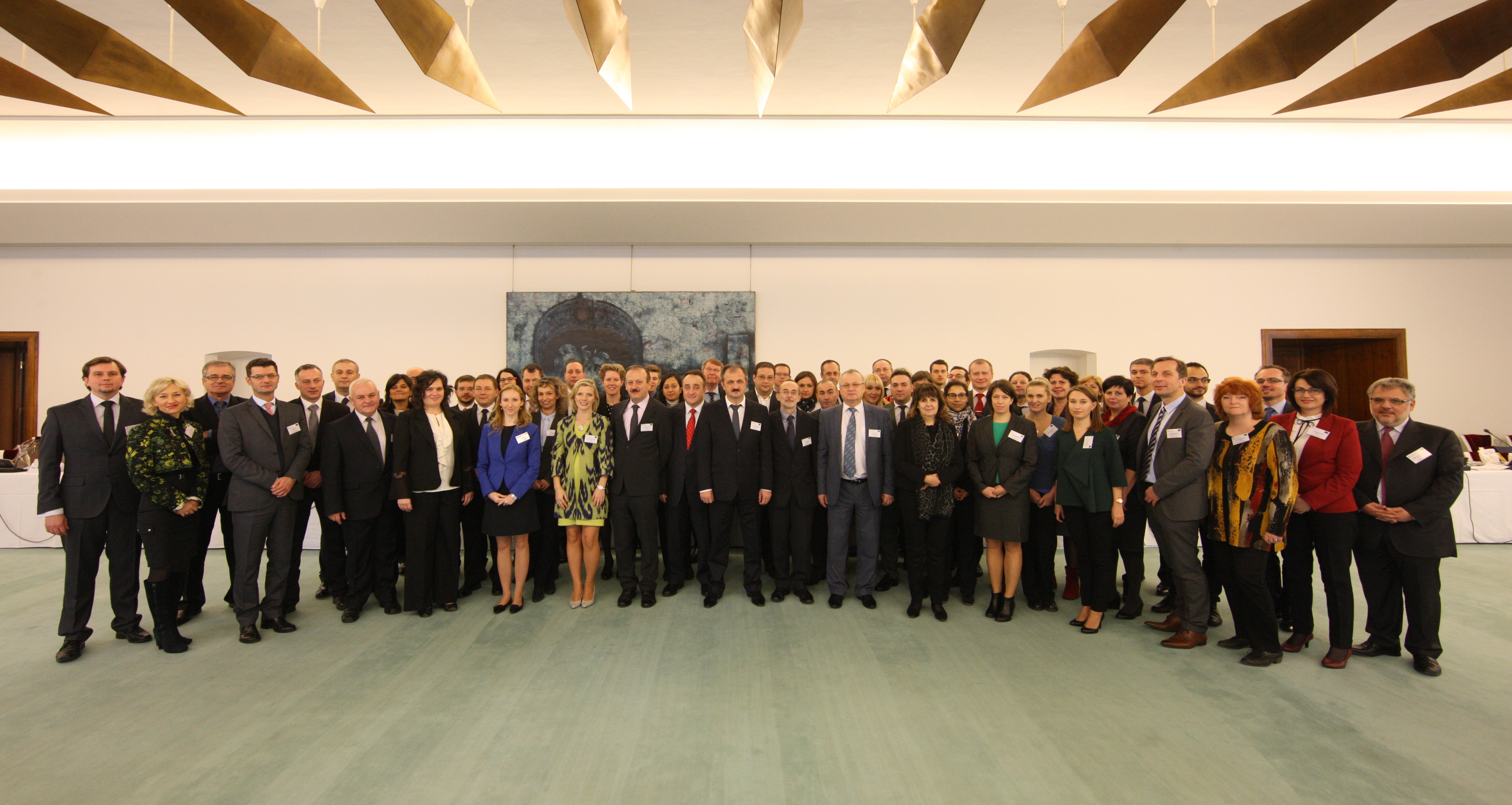The Prague Process Senior Officials’ Meeting, being at the same time the second preparatory SOM for the 3rd Ministerial Conference in October 2016, took place in Prague on 7-8 December 2015, gathering participants from 30 states, the European Commission Directorate General for Home Affairs (DG HOME) and Directorate General for International Cooperation and Development (DG DEVCO), the Council of the European Union, the European External Action Service (EEAS), the European Asylum Support Office (EASO), Frontex, as well as ICMPD, IOM and UNHCR.
The central question of this meeting was to discuss the benefits brought by the Prague Process and ways to further increase its importance in the future. The mid-term evaluation of the Process, carried out in 2015, confirmed the Process’ significant contribution to international cooperation in the region. Senior Officials agreed that, in spite of the agreement reached in July 2015 that the Poznan Action Plan 2012 – 2016 priorities would remain valid for the future, the current rationalisation of migration policies would nonetheless suggest a stronger focus on the most important migration policy areas and most pressing issues in the future.
The first point of the Agenda was to adopt the Evaluation report, the findings of which were based on responses received from 36 participating states and five partner organisations. The evaluation has been rated as overly positive and constructive, and suggested that such evaluations could be carried out on a regular basis in the future. The report was thereafter unilaterally adopted by the SOM.
The next outstanding issue was to reconfirm the agreement, reached during the previous SOM in July 2015, on publishing of Migration profiles without explicit endorsement of the respective state after a three-month period for any eventual feedback. The publication would entail a remark that the document was not officially endorsed.
The European Commission reminded of two key documents, adopted in 2015, namely the European Agenda on Migration and European Agenda on Security. These two Agendas and the completed review of the European Neighbourhood Policy are essential for the future of the Prague Process. Other important measures planned for 2016 will be targeting policy areas such as human smuggling, Integrated Border Management, return and overall security issues.
The Slovak Republic shortly presented the state of preparations of the Ministerial Conference in Bratislava in October 2016 as well as the priorities of the Slovak EU Presidency in the migration sphere. The future Ministerial Declaration is expected to define concrete action and timeframes. The Slovak Presidency will put a focus on the implementation of the Agenda on Migration and the Agenda for Security as well as on Smart Borders Package, the reform of the Visa Code, and issues of human smuggling, trafficking and return.
The working session on the future of the Prague Process addressed the strengthening of the Knowledge Base and its gradual transformation into the projected Migration Observatory. The use of the outcomes of the Pilot and “Umbrella” Projects in the form of a sustainable training curriculum is deemed equally important. In this regard the Czech Republic presented the concept of the Training and Analytical Centre the aim of which is to provide for a simplified and flexible approach to capacity building and information exchange in a way to reach more practical and tangible results. The idea was supported by the SOM, and would therefore be further developed.
The second day of the meeting was devoted to presentation on the current migration situation across the PP region, aiming to provide the latest updates on the dynamic developments witnessed since the last SOM in July 2015.
The next SOM will take place in Poland in May-June 2016.

